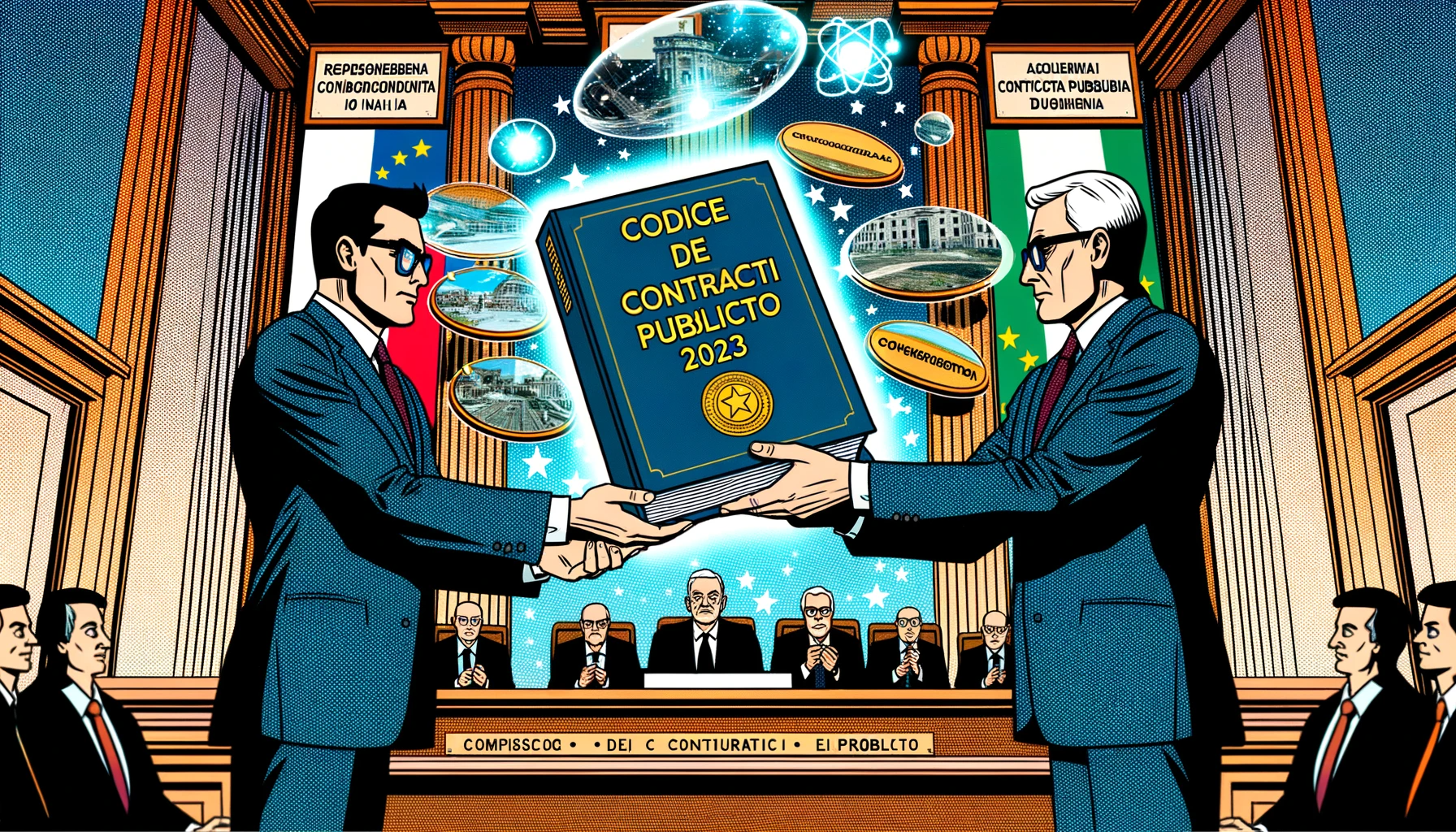Note e Relazioni

The Project Manager in the new Code of public contracts
Gabriele Maria Brenca | 28 September 2023 | Issue 3/2023
The paper offers a quick review of the Project Manager provided for by the new Code of public contracts of March 31, 2023, and highlights the main features of this central figure in the context of public procurement procedures by comparing it with the already existing Project Manager drawn by the “old” 2016 Code.
Read More
The Problems of Administrative Justice in the Third Millennium
Maria Alessandra Sandulli | 7 June 2023 | Issue 2/2023
The Author briefly reviews the major problems of administrative justice in the Third Millennium. These include: digitalization and judicial review of automated decisions by administrative judges; the relationships between national and EU law; legal measures to reduce delays in judgments without affecting their effectiveness and the uncertainty of rules and the excessive discretion left to judges.
Read More
Images from a possible future: the paradigm of legal standing
Pier Luigi Portaluri | 18 May 2023 | Issue 2/2023
In the Italian legal system – a constitutional State that has emerged from the ferocious totalitarianisms of the 20th century – access to judges is filtered by a control of worthiness that is based on indeterminate concepts, namely variable and personal tables of values. It is therefore possible – necessary, perhaps – to use the paradigm of legitimacy to argue for a broadening of access. It is necessary to loosen, if not quite sever, the hitherto tight and suffocating bond between the proximity of the subject to the physical place where the administrative decision impacts, and the actionability of the claim. There is a minimum objective, recently framed by the Plenary Assembly of the Council of State: to understand vicinitas in terms of contiguity that is no longer only material, but also axiological. And then a more ambitious one: to “de-subjectivise” the claim, to the point of configuring trans-subjective rights, that is, “without master”.
Read More
Briefs notes on the dialogue between Courts in light of recent procedural reforms
Antonio Barone | 10 May 2023 | Issue 2/2023
The paper develops brief critical reflections on the dialogue between national and supranational courts, with particular reference to the European Court of Justice and the European Court of Human Rights, in light of recent procedural reforms.
Read More
Present and future challenges of Italian administrative justice
Fulvio Cortese | 8 May 2023 | Issue 2/2023
In recent years, the Italian system of judicial protection against public administration has undergone important transformations. Some are connected to the pandemic emergency. Others concern the need to optimize the ability of administrative judges to decide disputes. This contribution underlines how these experiments are a symptom of wider-ranging changes. In particular, these are changes in which the importance of specific organizational factors and the renewal of technical skills suitable for supporting the activity of the judge emerge as determining elements.
Read More
Current challenges and future perspectives of administrative justice: an introduction
Claudio Franchini † | 16 April 2023 | Issue 2/2023
This is the introductory speech to the Round Table which outlines some of the aspects that have characterized the progress made by administrative justice with a view to tackling a new challenge: that of continuing to ensure a balanced relationship between private and public interests even in the presence of, on the one hand, extensive and significant transformations and, on the other, judicial instruments that are evolving towards hybrid forms, different from the original models.
Read More
State-owned maritime concessions and the need for a competitive selection procedure: for the Council of State, the use of tenders is not imperative
Alessia Monica | 21 March 2023 | Issue 1/2023
The Council of State, with its judgment n. 11664/2022, deemed as unlawful the decision of the Gaeta municipality to deny the assignment of a new State-owned maritime concession and, particularly, the public administration's choice to recur to a tender procedure. Although in consideration of the effectiveness of the EU legal framework claiming for a «selective procedure» based on impartiality and transparency, the judges pointed out how this concession should be granted in compliance with the general principles of a «comparative evaluation» as already set out in article 37 of the Italian Navigation Code. The tender procedure is, instead, to be used as from 2024, according to the dead-line indicated to the legislator by the Plenary Assembly of the Council of State (decisions n. 17 and 18 of 2021) to carry out a structural reform of the bathing-facilities sector.
Read More
The Municipal Secretary and his limits: "guarantor" but not "manager"
Riccardo Cabazzi | 13 March 2023 | Issue 1/2023
The Secretary-General ensures (also) an independent control over the activities of local authorities. Therefore, in the light of this function, in addition to that of coordination and oversight, he/she cannot advocate acts of management, except in the event of default. The Administrative Tribunal (TAR) of Calabria, by judgment n. 1653/2022, has declared illegitimate, for relative incompetence, the award of a contract with a decision taken by the Secretary-General rather than the responsible Public Officer.
Read More
Critical notes on the regulation of administrative penalties to prevent the dissemination of Covid-19
Paolo Provenzano | 22 December 2022 | Issue 4/2022
This article critically analyzes the regulation of administrative penalties, starting with Decree Law No. 19/2020, that have the intention of sanctioning conduct that has the potential to increase the spread of Covid-19.
Read More
Safeguarding the European Sport Model in Professional Football: The EU Court of Justice’s Delicate Task in Case European Super League Company (C-333/21)
José Luís da Cruz Vilaça | 16 November 2022 | Issue 4/2022
Sports go way beyond their economic dimension. They are part of Europe’s identity and culture, fulfilling important social, educational and cohesion purposes. However, when it comes to professional sports and football in particular, the economic dimension has normally taken precedence. That EU law introduces limits to the rules enacted by sports governing bodies is not a novel question. Nonetheless, recent events, notably related to a renewed push by some of the biggest and wealthiest football clubs to set up “breakaway leagues”, have once again brought the relationship between EU law and sports to the spotlight.
Read More